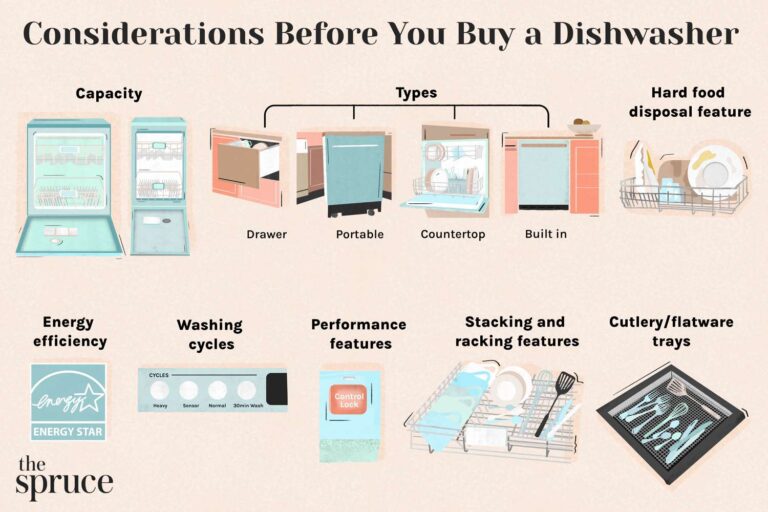Smart Home Appliance Trends to Watch: The Future of Home Automation in 2025
The world of smart home appliances is rapidly evolving, and 2025 promises to bring even more advanced technology into our homes. From refrigerators that can track groceries to ovens that preheat automatically, smart home appliances are designed to make life easier, more efficient, and more sustainable. As deep learning and artificial intelligence (AI) continue to reshape the landscape of home automation, it’s essential to stay ahead of the latest trends to make the most of these innovations. In this article, we’ll explore the top smart home appliance trends to watch in 2025, and how these advancements will transform the way we live, work, and interact with our homes.
AI-Powered Smart Kitchens: Automation Meets Convenience
In 2025, the kitchen will be at the forefront of smart appliance innovation. AI-powered kitchen devices will be able to learn your cooking preferences and habits, providing personalized meal suggestions and even helping you manage your grocery shopping. Smart ovens, for instance, will be able to recognize ingredients and suggest recipes based on what you have on hand, adjusting cooking times and temperatures accordingly. With voice assistants like Alexa and Google Assistant integrating seamlessly into these appliances, you can control your kitchen without lifting a finger. Expect smarter refrigerators that track inventory, help reduce food waste, and automatically place orders for missing items.
Energy-Efficient Smart Appliances: A Sustainable Future
Energy efficiency is becoming a top priority, and 2025 will see a surge in smart appliances that help conserve energy without compromising performance. Smart thermostats, washers, dryers, and refrigerators will use advanced sensors to adjust energy usage based on real-time data. For example, a smart washing machine can automatically determine the ideal water temperature and cycle length based on the load size and fabric type, reducing unnecessary energy consumption. These appliances will also connect to home energy management systems, allowing you to track your energy use and make adjustments for maximum savings. With a growing focus on sustainability, these energy-efficient appliances will play a key role in reducing your household’s carbon footprint.
Enhanced Connectivity: The Internet of Things (IoT) and Smart Integration
The integration of smart appliances into the Internet of Things (IoT) will continue to evolve in 2025, making homes more interconnected than ever. Appliances will seamlessly communicate with each other, allowing for a truly smart home experience. For example, a smart washing machine could notify your smart dryer when a load is ready, or a refrigerator could send a reminder to your phone when it’s time to clean the filter. With IoT, you’ll be able to control your entire home ecosystem from a single device, whether that’s a smartphone, tablet, or voice-activated assistant. The convenience and coordination offered by IoT will allow for smarter, more efficient home management.
Voice-Controlled Home Appliances: A New Level of Convenience
Voice-controlled home appliances are set to dominate in 2025, making hands-free operation the standard in home automation. Whether it’s adjusting the thermostat, turning on the dishwasher, or preheating the oven, voice assistants will make everyday tasks faster and easier. The integration of AI into these voice-activated devices will allow them to recognize not only commands but also preferences, adapting to the user’s needs and routine. Expect appliances that can respond to natural language and offer personalized suggestions, making your home feel even more intuitive and responsive to your lifestyle.
Smart Home Security Appliances: Advancements in Protection and Surveillance
Smart home security systems are becoming more sophisticated in 2025, offering enhanced protection and peace of mind. New trends include AI-powered cameras that can differentiate between familiar faces and strangers, automatic locking systems that adapt to your behavior, and doorbell cameras with real-time alerts. These systems will integrate seamlessly with other smart appliances, creating a fully connected home where security is prioritized. Additionally, with advancements in machine learning, these systems will become more proactive, anticipating potential threats based on behavior patterns and alerting homeowners before issues arise. With these innovations, your home will be safer and more secure than ever.
FAQs
1. What are the main benefits of AI-powered smart appliances? AI-powered appliances offer convenience, efficiency, and personalization. They learn your habits and preferences to improve functionality, save time, and reduce energy consumption.
2. How do smart appliances contribute to energy savings? Smart appliances use sensors and data analysis to optimize energy usage. They automatically adjust settings based on real-time information, ensuring energy is used only when necessary.
3. Will smart appliances make my home more secure? Yes, smart security devices, such as AI-powered cameras and smart locks, offer enhanced protection by using advanced features like facial recognition and real-time alerts to keep your home safe.
4. How do smart home appliances integrate with the Internet of Things (IoT)? Smart appliances are designed to communicate with each other and other devices in your home through the IoT, creating an interconnected network that allows for seamless control and automation.
5. Can voice-controlled appliances improve home convenience? Yes, voice-controlled appliances make everyday tasks more convenient by allowing you to control devices hands-free, increasing efficiency and offering a more intuitive way to interact with your home.

